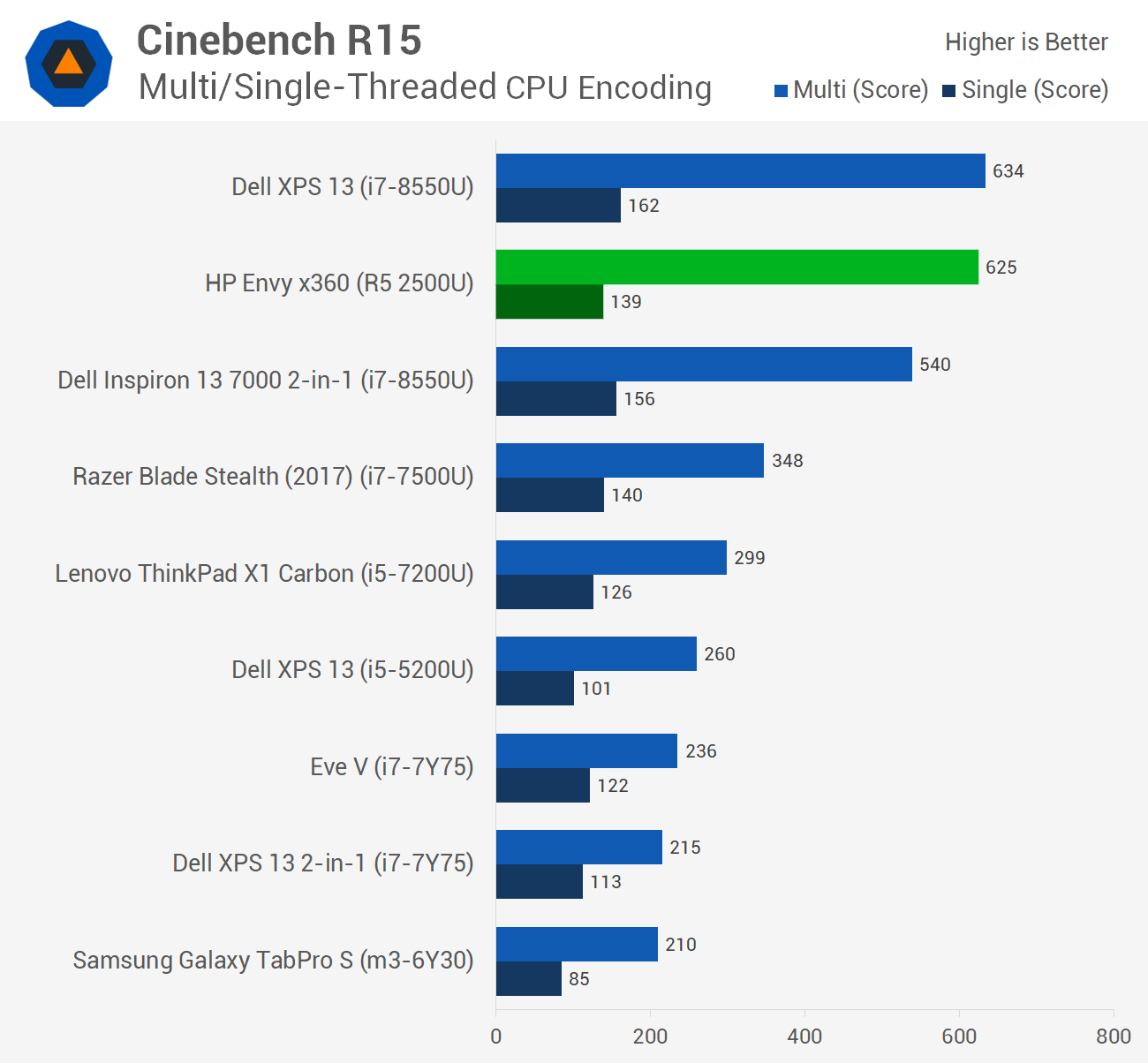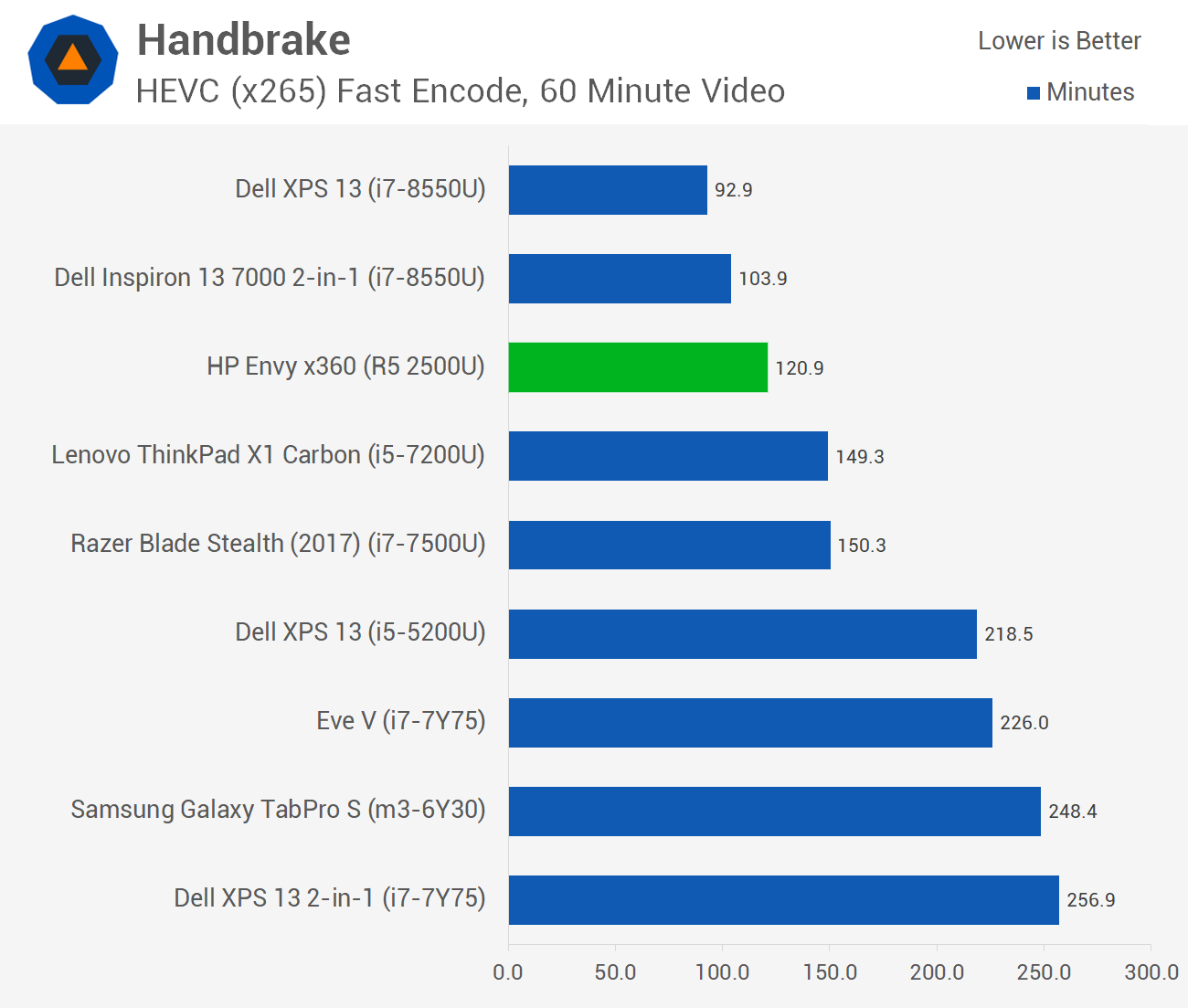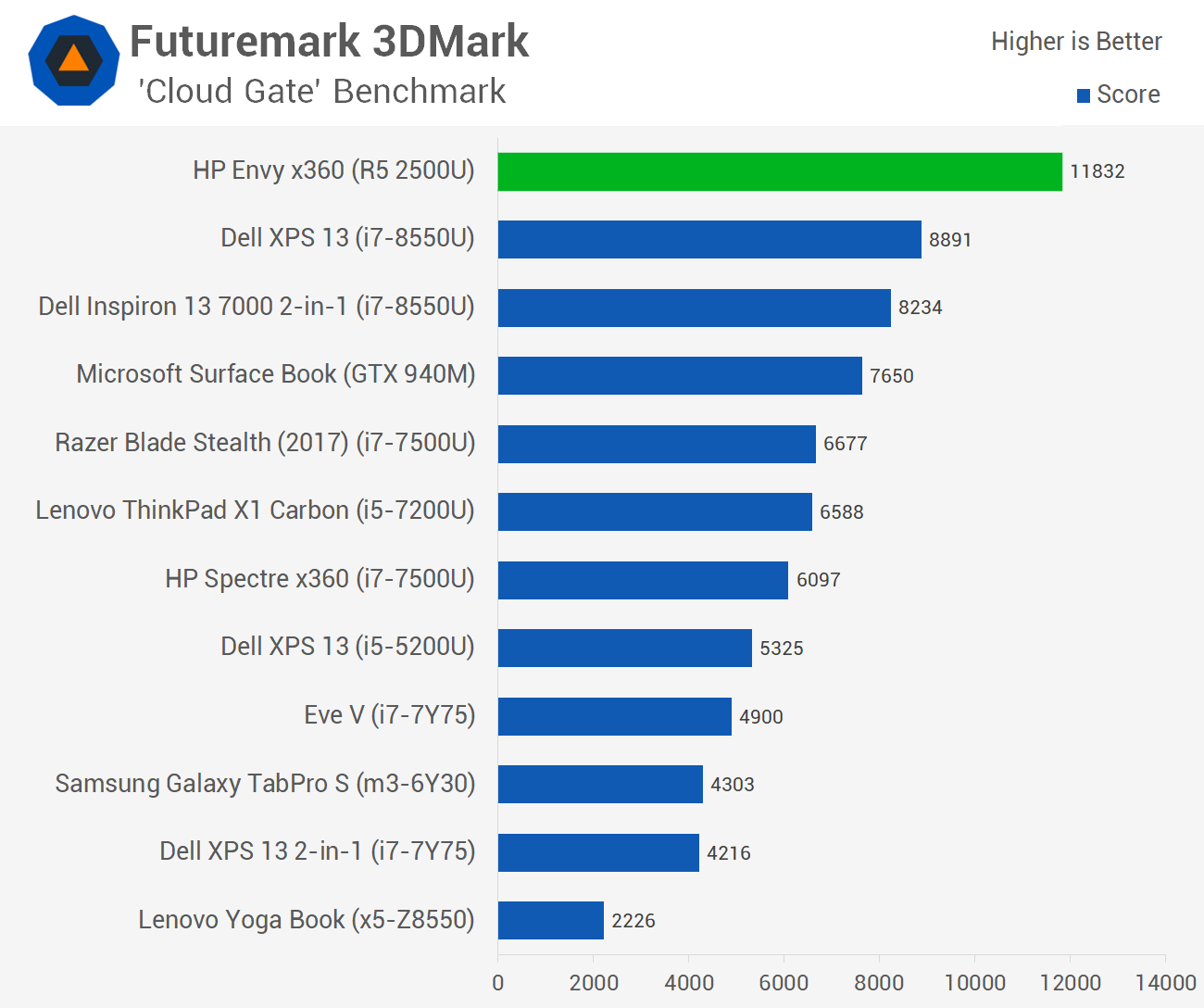Performance
As I covered the performance of the Ryzen 5 2500U extensively in a separate article, I'm not going to go into detail about the performance of this laptop. If you're interested in a ton of benchmarks for this APU in this very laptop, check out my review of the Ryzen 5 2500U; or check my previous coverage of Intel's 8th-gen CPUs if you're thinking of picking up an Intel variant.
What I will give you guys here is a brief highlights package of how the Envy x360 with its Ryzen 5 2500U performs. Alongside this quad-core APU with Vega 8 graphics in my review unit is 16GB of RAM and a 256GB SSD with a 1TB hard drive, so it's a mid-tier SKU that will be popular with buyers I'd imagine.









When looking at CPU workloads, the Ryzen 5 2500U is behind Intel's 8th-gen Kaby Lake Refresh CPUs, but only marginally in some cases. Typical results see the Core i7-8550U pull ahead by 10 to 25 percent, though this margin is slimmed when comparing the Ryzen 5 APU to a Core i5. If you're coming from literally any other older 15W CPU generation, you'll see gains of more than 50 percent, which is particularly handy for intensive tasks like video editing.
On the GPU side, if you're comparing the Ryzen 5 2500U to a straight 8th-gen CPU with integrated graphics, it's a big win for Ryzen. The Vega 8 GPU is more than twice as fast as the UHD 620 graphics in the i7-8550U in GPU-heavy workloads like gaming, which in some situations allows games to become playable where on Intel systems they are not.
If you introduce an Nvidia GeForce MX150 into the mix, which is available in some Envy x360 models, it's a bit of a different playing field. The MX150 is faster than Vega 8, in the range of 30 to 60 percent judging by most data I've seen. Considering it only costs an extra $50 or so to 'upgrade' to this discrete GPU, that will be well worth it for most people.


Like many other laptops on the market, the Envy x360 makes use of Samsung's PM961 for its solid state storage. The PM961 is a PCIe NVMe SSD equivalent to the 960 Pro, so it's decently fast, good for well over 1 GB/s sequential reads and writes along with respectable random performance. Surprisingly this isn't one of the areas HP skimped on; maybe they should have gone with a slightly slower and cheaper SSD, using the leftover cash to improve the display.
